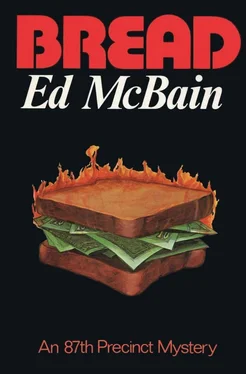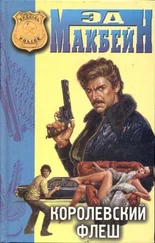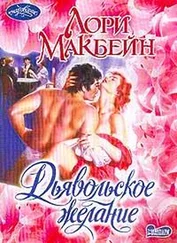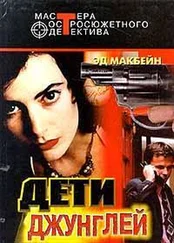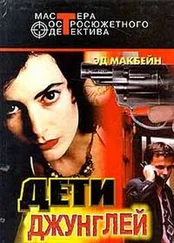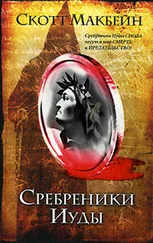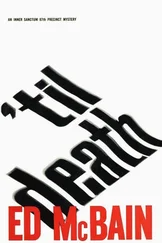“Anybody dust this light switch?” he asked Reardon.
“What?”
“Did any of the lab technicians examine this switch for fingerprints?”
“Gee, I don’t know,” Reardon said. “Why?”
Carella reached into his inside jacket pocket and pulled out a sheaf of evidence tags. From his side pocket, and musing on the fact that a cop in the field is a walking stationery store, he removed a small roll of Scotch tape. He yanked one of the evidence tags from under the rubber band holding the stack together and then Scotch-taped it, top and bottom, over the light switch. “Somebody’ll be here later,” he told Reardon. “Leave this just the way it is.”
“Okay,” Reardon said. He looked puzzled.
“Mind if I use your phone?”
“On the wall outside,” Reardon said. “Near the clock.”
Carella went out into the corridor. Scribbled onto the wall in pencil alongside the phone were the names and numbers of Reardon’s counterparts, Lockhart and Barnes. Carella dialed the Police Laboratory downtown on High Street and spoke to a lab assistant named Jeff Warren, telling him what he thought and requesting that somebody come to the warehouse to dust the switch. Warren told him they were up to their asses at the moment with a pile of dirty clothes from a suspected murderer’s apartment, going through it all for laundry and dry-cleaning marks, and he doubted anybody could get up there before morning. Carella told him to do the best he could, hung up, and fished in his pocket for another dime. He found only three quarters, and asked Reardon if he had any change. Reardon gave him two dimes and a nickel, and Carella dialed Lockhart’s number from the penciled scrawl on the warehouse wall.
Lockhart sounded sleepy when he answered the phone. Carella belatedly remembered that he was dealing with a night watchman and instantly apologized for having awakened him. Lockhart said he hadn’t been asleep and asked what Carella wanted. Carella told him he was investigating the Grimm fire and would appreciate talking to him and Barnes if the three of them could get together sometime later in the afternoon. They agreed on 3:00, and Lockhart said he would call Barnes to tell him about the meeting. Carella thanked him and hung up. Reardon was still at his elbow.
“Yes?” Carella said.
“They won’t be able to tell you anything,” Reardon said. “The other cop already talked to them.”
“Have any idea what they said?”
“Me? How would I know?”
“I thought they were friends of yours.”
“Well, they relieve me every night, but that’s about it.”
“What’ve you got here?” Carella asked. “Three shifts?”
“Just two,” Reardon said. “Eight in the morning till eight at night, and vice versa.”
“Those are long shifts,” Carella said.
Reardon shrugged. “It ain’t a hard job,” he said. “And most of the time, nothing happens.”
Carella treated himself to a long, leisurely lunch at a French restaurant on Meredith Street, wishing that his wife were there to share the meal with him. There is perhaps nothing more lonely than eating a French meal all by yourself, unless it’s eating Chinese food alone, but then the Chinese are experts at torture. Carella rarely longed for Teddy’s company while coping with the minute-by-minute aggravations of police work, but here and now, relieved of routine for just a little while, he wished she were there to talk to him.
Contrary to the opinion of some male show-business pigs who surmised that being married to a beautiful deaf-mute guaranteed a lifetime of submissive silence, Teddy was the most talkative woman Carella knew. She talked with her face, she talked with her hands, she talked with her eyes, she even “talked” when he was talking, her lips unconsciously mouthing the words his own lips formed as she watched and read the words. They talked together about everything and anything. He suspected that the day they stopped talking would be the day they stopped loving each other. Even their fights (and her silent raging anger was frightening to behold, those eyes flashing, those fingers shooting sparks of molten fury) were a form of talking, and he cherished them as he cherished Teddy herself. He ate his Duck Bigarade in silence, alone, and then drove to Stiller Avenue for his 3:00 appointment with Lockhart and Barnes.
Clearview, in Calm’s Point, was a section of the city variously labeled “heterogeneous,” “fragmented,” or “alienated,” depending on who was doing the labeling. Carella saw it for exactly what it was: a festering slum in which white men, black men, and Puerto Ricans lived elbows-to-buttocks in abject poverty. Perhaps Mr. Agnew, who had seen one slum and therefore seen them all, had never had to work in one. Carella worked in a great many different slums as part of his everyday routine, and since he was not a milkman or a letter carrier or a Bible salesman, but was instead a police officer, his job sometimes got a bit difficult. If there is one thing the residents of a slum can detect immediately, it is the smell of a cop. Slum dwellers do not like policemen. Being a cop (and naturally being a bit defensive about judgments made on the basis of whether or not a man is carrying a police shield), Carella could nonetheless recognize the fact that slum dwellers, both criminal and honest, had very good reasons for looking upon the Law with a dubious and distrustful eye.
Many of the cops Carella knew were non-discriminating. This did not mean they were unprejudiced. In fact, they were sometimes too overly democratic when it came to deciding exactly which citizen was in possession of a glassine bag of heroin lying on a sawdust-covered floor. If you were a black or a tan slum dweller, and a white cop entered the joint, the odds were six-to-five that he suspected all non-whites of using narcotics, and you could only pray to God that a nearby junkie (of whatever color) would not panic and dispose of his dope by dropping it at your feet. You also realized that, God forbid, you might just possibly bear a slight resemblance to a man who’d held up a liquor store or mugged an old lady in the park (white cops sometimes finding it difficult to distinguish one black man or one Puerto Rican from another) and end up at the old station house being advised of your rights and subjected to a strictly by-the-book interrogation that would crack Jesus Christ himself.
If you happened to be white, you were in even worse trouble. In the city for which Carella worked, most of the cops were white. They naturally resented all criminals (and slum dwellers were often automatically equated with criminals), but they especially resented white criminals, who were expected to know better than to run around making the life of a white cop difficult. The best thing a slum dweller could do when he smelled a cop approaching was get the hell out fast. Which is exactly what everybody in the bar did the moment Carella walked in. This did not surprise him; it had happened too often before. But it did leave him feeling somewhat weary, and resigned, and angry, and self-pitying, and sorrowful. In short, it left him feeling human — like the slum dwellers who had fled at his approach.
A white man and a black man were sitting together in a booth near the jukebox. With the exception of the bartender and a hooker in hot pants (who wasn’t worried about a bust, probably because her pimp had a fix in with the cop on the beat), they were the only two people who didn’t immediately down their drinks and disappear. Carella figured them to be Lockhart and Barnes. He went over to the booth, introduced himself, and ordered a fresh round of drinks for them. Aside from their coloration, Lockhart and Barnes were similar in almost every other respect. Each man was in his early seventies, each was going bald, each had the veined nose and rheumy eyes of the habitual drinker, each had work-worn hands, each had a face furrowed with deep wrinkles and stamped indelibly with weariness and defeat, the permanent stigmata of a lifetime of grinding poverty and meaningless labor. Carella told them he was investigating the Grimm case and wanted to know everything they could remember about the night of the fire. Lockhart, the white man, looked at Barnes.
Читать дальше
